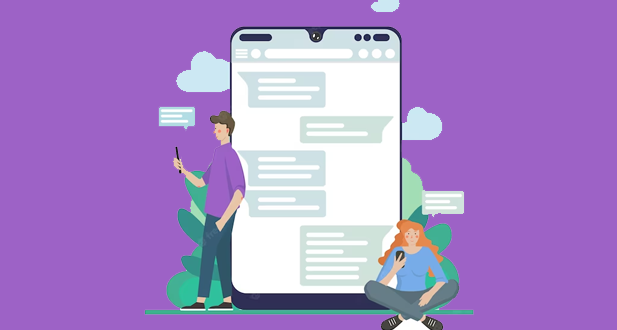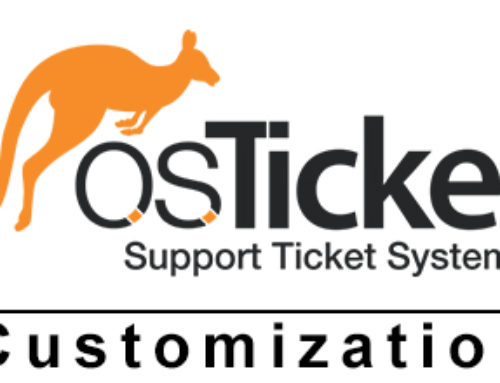An Introduction:
WhatsApp API is a platform that enables businesses to communicate with customers through WhatsApp. This API helps businesses to send automated messages, handle customer support, and keep track of conversations. It was introduced in 2018 and since then has become a popular way for businesses to reach out to their customers. The API has been designed to be simple and easy to use, making it accessible to businesses of all sizes.
BENEFITS OF USING WHATSAPP API
- Reach customers directly: With the WhatsApp API, businesses can reach their customers directly through the app, which is used by billions of people worldwide. This means that businesses can reach a large number of customers in a short amount of time.
- Automated messages: The API allows businesses to send automated messages, which saves time and reduces the workload of customer support teams. Automated messages can include order confirmations, shipping updates, and reminders.
- Easy integration: The API is easy to integrate with existing systems and processes, making it simple for businesses to start using it.
- Customer engagement: By using the WhatsApp API, businesses can engage with customers in real-time, providing quick and efficient customer support. This helps to improve customer satisfaction and build brand loyalty.
- Data protection: WhatsApp is committed to protecting customer data and has strict policies in place to ensure that customer information is safe and secure.
- A System for Instantaneous Communication: A company can automate communications like welcome messages, notifications, and more by using WhatsApp’s Business API. As a result, less time is needed to manually respond to consumers’ inquiries.
- Registration for Message Delivery: Subscription messages may be sent to clients via the WhatsApp Business API interface, keeping them abreast of any new offerings.
- Notifications of Delivery: When a company integrates the WhatsApp Business API, they may notify clients of the delivery status of their orders.
- Payments: The addition of the WhatsApp Business API paves the way for monetary transactions to be processed within the WhatsApp app. In this way, clients may make safe and speedy purchases.
- Ability to Use Many Languages: Integrating WhatsApp’s Business API also supports different languages, increasing a company’s potential client base.
- Multiple-device support: Businesses can reach their clients on the device of their choice thanks to WhatsApp’s API connection.
- Statistical Analysis and Insights: Companies who integrate the WhatsApp Business API gain access to statistics and insights that shed light on customer behavior and preferences.
HOW TO USE WHATSAPP API
To begin utilizing the WhatsApp Application Programming Interface (API), organizations must first submit an application for access through the WhatsApp Business API Provider. Once their application has been reviewed and approved, they will be able to begin using the API to send messages, as well as manage customer support. The application programming interface (API) allows for the transmission and reception of text messages, as well as image, audio, and video data.
Businesses need to comply with WhatsApp’s regulations, which include guidelines on the content of messages and the frequency with which they should be sent. In addition to this, they are obligated to protect the privacy of their clients and give them the opportunity to opt out of receiving messages at any time.
WHAT’S THE BIG DEAL ABOUT INTEGRATING WHATSAPP INTO A BUSINESS?
- To Get Your Message Out to More People: Companies may expand their consumer base and increase sales by tapping into WhatsApp’s massive user base by integrating the platform’s Business API. Over 1.5 billion people around the world use WhatsApp, making it one of the most widely used apps ever.
- Service and support automation for customers: To better serve their clientele, businesses are increasingly integrating the WhatsApp Business API. In addition to saving time and effort, this also makes the shopping experience more unique for each individual consumer.
- Increase Participation from Your Clientele: By using the WhatsApp Business API, companies may more easily communicate with their consumers. Faster and more effective customer service is possible with the help of automated messages sent by businesses.
- Boost Revenue: When a company integrates the WhatsApp Business API, it may reach out to potential customers with WhatsApp ads. If more people are reached and serviced in a more unique way, sales can go up.
- Improve Interoffice Conversations: The integration of WhatsApp’s Business API helps improve internal communication within businesses. Through the platform, businesses are able to better interact with their staff, resulting in increased efficiency and production.
- Boost Customer Dedication: Integrating WhatsApp’s Business API helps boost client retention rates. Businesses can use the system to facilitate more in-depth interactions with their clientele, which in turn will strengthen the bonds between the two parties.
- Improve Client Happiness: Integrating the WhatsApp Business API can boost happy customers and your bottom line. Businesses may guarantee timely customer care by employing automated customer service and support systems.
- Check How Your Clients Are Acting: Integrating the WhatsApp Business API might aid businesses in tracking user actions. The technology allows businesses to monitor consumer activity, which in turn allows them to learn more about their demographic and improve their offerings accordingly.
- To Create Potential Customers: It has been shown that integrating the WhatsApp Business API can increase lead generation for companies. Companies can increase their chances of making a sale by connecting with prospective buyers and providing them with tailored support through the platform.
WHATSAPP API: GETTING STARTED
- Register for the WhatsApp Business API: To get started with the WhatsApp API, businesses must first register for the WhatsApp Business API. This requires completing a registration form and providing information about the business, including its phone number and website.
- Integrate with existing systems: Once registered, businesses can integrate the WhatsApp API with their existing systems and workflows. This requires developing a custom integration, which can be done in-house or with the help of a third-party developer.
- Obtain a Twilio number: In order to use the WhatsApp API, businesses must obtain a Twilio number. Twilio is a cloud communication platform that provides APIs for messaging, voice, and video.
- Verify your phone number: Once a Twilio number has been obtained, businesses must verify their phone number with WhatsApp. This is done by sending a verification code to the phone number and entering it in the Twilio console.
- Start messaging: Once the integration is complete and the phone number has been verified, businesses can start using the WhatsApp API to send messages to customers.
WhatsApp API: Cost
The cost of using the WhatsApp API depends on the volume of messages sent and received. Businesses can expect to pay a monthly fee for the Twilio API, as well as a fee for each message sent and received through the API. The exact cost will vary based on the business’s needs and usage.
Charges made monthly: Through official WhatsApp business solution providers, users can gain access to the application programming interface (API). Access to the WhatsApp Channel is available for a monthly fee of $90 if purchased through Userlike.
Setup charges: Many service providers, in addition to the monthly fee, assess a one-time setup fee in order to compensate for the technically more sophisticated nature of API integration in comparison to other channels. For example, the service provider Vonage levies a fee of one thousand Euros for each number. Userlike doesn’t charge a setup fee.
Costs associated with each discussion: Instead of charging a cost per message template, WhatsApp will instead charge a fee per conversation beginning in February 2022. This change to WhatsApp’s pricing strategy will take effect at that time.
DATA PRIVACY AND ENCRYPTION FROM END TO END
Data privacy is an essential part of any conversation with a client and should be taken into account whenever a new channel of communication is introduced.
The safe and sound configuration of the WhatsApp Business API makes it possible for businesses to use WhatsApp for customer service purposes. This method is more secure than regular email since all messages are encrypted from beginning to end before being sent. This includes WhatsApp and other third-party services.
CONCLUSION
WhatsApp API is a powerful tool that enables businesses to reach customers directly, automate messages, and manage customer support. With its easy integration and real-time customer engagement, the API is a valuable addition to any business looking to improve customer satisfaction and build brand loyalty.
FREQUENTLY ASKED QUESTIONS
No, there is a cost associated with using the WhatsApp API. The cost varies depending on the usage and the provider.
Yes, automated messages can be sent at any time. However, it is important to follow WhatsApp’s guidelines on sending frequency and to respect customers’ privacy.
The WhatsApp API provides businesses with a simple way to manage customer support. You can send automated messages, receive customer messages, and track conversations in real time. This helps businesses to provide quick and efficient customer support, improving customer satisfaction.
Yes, the WhatsApp API is designed to be easy to integrate with existing systems, making it simple for businesses to start using it.
The WhatsApp API supports sending and receiving text messages, images, audio, and video files.






